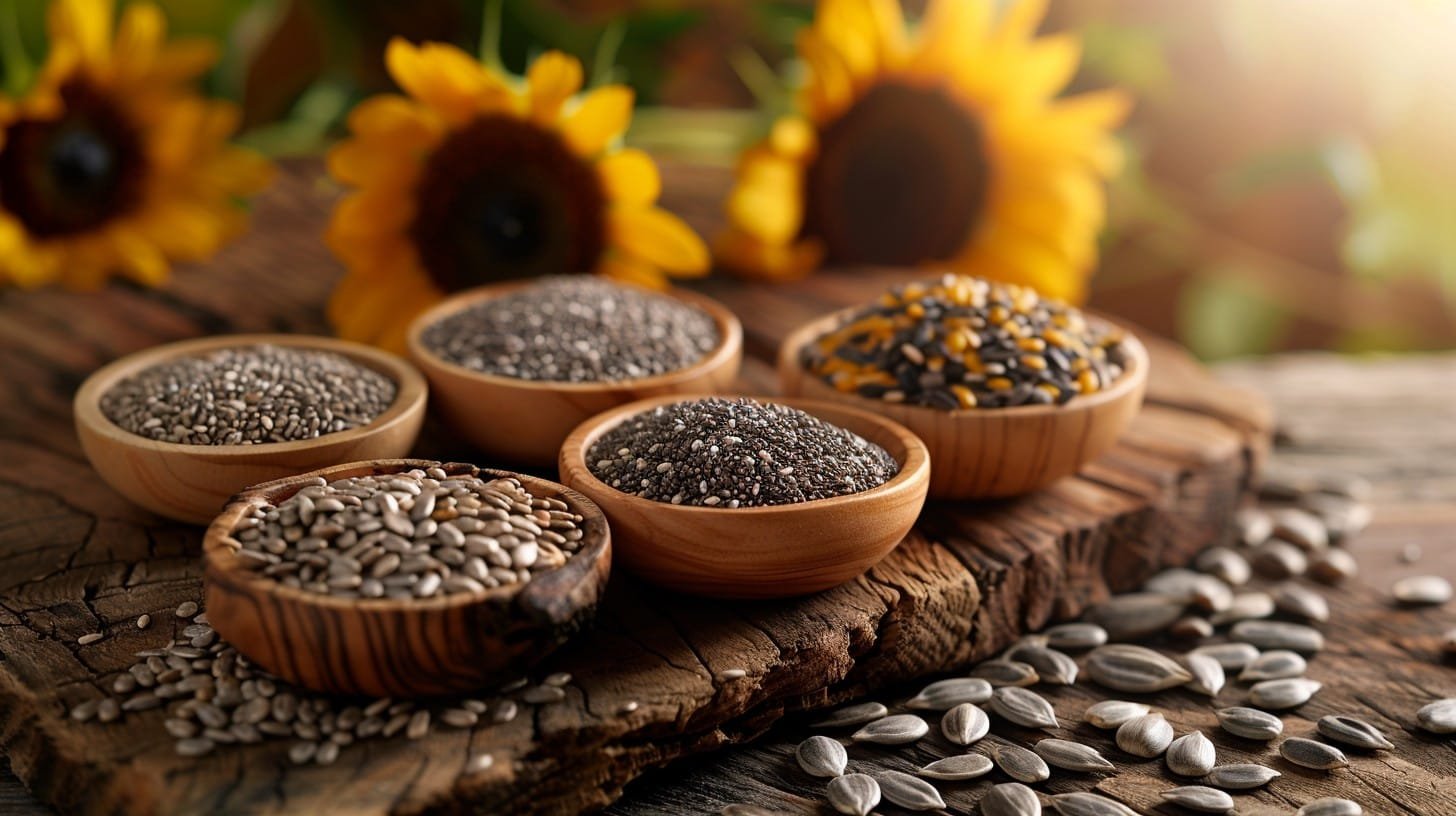As people age, maintaining good nutrition becomes increasingly challenging. Seniors often face unique nutritional needs due to physiological changes, lifestyle adjustments, and potential medical conditions. Nutritional deficiencies in older adults can lead to reduced immunity, fatigue, and a decline in quality of life. Addressing these deficiencies is essential for ensuring health and longevity in the golden years.

In this article, we’ll explore the most common nutritional deficiencies in seniors, their causes, symptoms, and practical steps for addressing them through dietary adjustments, supplements, and lifestyle changes.
Vitamin D Deficiency
Why It’s Common
As people age, their skin becomes less efficient at synthesizing vitamin D from sunlight, and reduced outdoor activities can limit sun exposure. Additionally, dietary intake alone often doesn’t provide sufficient vitamin D.
Symptoms
- Bone pain and weakness
- Increased risk of fractures
- Fatigue and muscle weakness
Solutions
- Sun Exposure: Encourage spending some time outdoors in sunlight each day, ideally for about 15-30 minutes.
- Diet: Include vitamin D-rich foods like fortified milk, fatty fish (salmon, mackerel), and egg yolks.
- Supplements: If dietary intake and sun exposure are insufficient, a vitamin D supplement (often combined with calcium) may be recommended, particularly in colder climates or during winter months.
Vitamin B12 Deficiency
Why It’s Common
With age, the stomach produces less acid, which is necessary for absorbing vitamin B12. Seniors, especially those who follow a vegetarian diet, are at a higher risk of deficiency.
Symptoms
- Fatigue and weakness
- Tingling or numbness in extremities
- Cognitive changes, such as memory loss or confusion
Solutions
- Diet: Incorporate B12-rich foods such as lean meats, poultry, fish, and fortified cereals.
- Supplements: In cases of severe deficiency, seniors may benefit from B12 injections or high-dose oral supplements.
Calcium Deficiency
Why It’s Common
Calcium is essential for bone health, but its absorption decreases with age. Postmenopausal women, in particular, are at a higher risk due to decreased estrogen levels, which affect calcium retention.
Symptoms
- Fragile bones and increased fracture risk
- Muscle cramps
- Dental issues
Solutions
- Diet: Include calcium-rich foods like dairy products (milk, yogurt, cheese), leafy green vegetables, and fortified plant-based milks.
- Supplements: A calcium supplement, often combined with vitamin D, can help improve calcium levels if dietary intake is insufficient.
Iron Deficiency
Why It’s Common
Iron deficiency in seniors may arise from decreased dietary intake, chronic diseases, or reduced stomach acid production. Iron deficiency can lead to anemia, which reduces oxygen delivery to cells, causing fatigue and weakness.
Symptoms
- Fatigue and general weakness
- Dizziness
- Pale skin
Solutions
- Diet: Encourage eating iron-rich foods like lean meats, spinach, legumes, and fortified cereals. Combining iron-rich foods with vitamin C sources (like oranges or bell peppers) can improve iron absorption.
- Supplements: For those unable to meet iron needs through food, a doctor may recommend an iron supplement.
Magnesium Deficiency
Why It’s Common
Older adults often consume diets low in magnesium, and certain medications, such as diuretics, can further deplete magnesium levels.
Symptoms
- Muscle cramps or spasms
- Irritability and anxiety
- Weakness
Solutions
- Diet: Incorporate magnesium-rich foods like nuts (almonds, cashews), whole grains, and leafy green vegetables.
- Supplements: A magnesium supplement may be recommended, particularly for those on medications that impact magnesium levels.
Fiber Deficiency
Why It’s Common
Fiber intake tends to decline with age, especially if appetite decreases or there’s a shift away from high-fiber foods. Low fiber intake can lead to digestive issues, including constipation.
Symptoms
- Constipation
- Blood sugar spikes and dips
- Increased cholesterol levels
Solutions
- Diet: Focus on fiber-rich foods like whole grains, fruits, vegetables, and legumes. Starting the day with high-fiber cereals or oatmeal can help.
- Hydration: Drinking sufficient water is crucial when increasing fiber intake, as it helps prevent constipation.
Potassium Deficiency
Why It’s Common
Potassium is essential for maintaining fluid balance, but certain health conditions (like kidney disease) and medications (especially diuretics) can lead to potassium loss in seniors.
Symptoms
- Muscle weakness and cramping
- Irregular heartbeats
- Fatigue
Solutions
- Diet: Include potassium-rich foods like bananas, oranges, spinach, and potatoes.
- Supplements: Potassium supplements are typically only recommended under medical supervision due to the risk of imbalance.
Omega-3 Fatty Acids Deficiency
Why It’s Common
Omega-3s are critical for brain and heart health. However, seniors may not consume enough fish or other omega-3-rich foods, leading to deficiency.
Symptoms
- Cognitive decline
- Increased inflammation
- Higher risk of heart disease
Solutions
- Diet: Incorporate fatty fish (like salmon, sardines) into meals twice a week, or add plant-based sources such as flaxseeds and walnuts.
- Supplements: Fish oil or algae-based omega-3 supplements can help if dietary intake is insufficient.
General Tips for Maintaining Nutritional Health in Seniors
Regular Health Screenings
Routine check-ups with healthcare providers can help monitor nutrient levels and detect any deficiencies early. Blood tests are valuable for tracking levels of iron, vitamin D, B12, and other key nutrients.Balanced Diet
A diet that emphasizes whole foods, including a variety of fruits, vegetables, lean proteins, and whole grains, can provide a solid foundation for meeting nutritional needs. Limit processed foods high in sugar, salt, and unhealthy fats, as they can exacerbate age-related health issues.Hydration
Older adults are often at risk of dehydration, which can affect nutrient absorption and overall health. Encourage drinking water consistently throughout the day.Physical Activity
Regular exercise not only improves physical health but also aids in digestion and nutrient absorption. Activities like walking, swimming, or gentle strength exercises are beneficial and often feasible for seniors.
Final Thoughts
Ensuring optimal nutrition in the later stages of life requires a thoughtful approach. Identifying and addressing nutritional deficiencies in seniors can greatly enhance quality of life, boost energy, and reduce the risk of various health complications. By integrating nutrient-dense foods, considering supplements where necessary, and promoting a lifestyle that supports overall wellness, seniors can enjoy a healthier, more fulfilling life.
Addressing common nutritional deficiencies in seniors doesn’t have to be complicated. Small dietary changes, careful supplement use, and regular monitoring can make a big difference.
Read More: Protein-Rich Diet Tips for Seniors Staying Active







